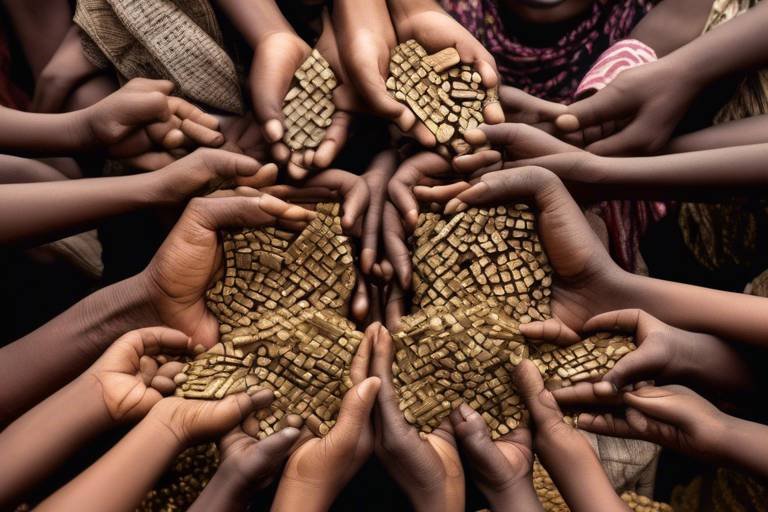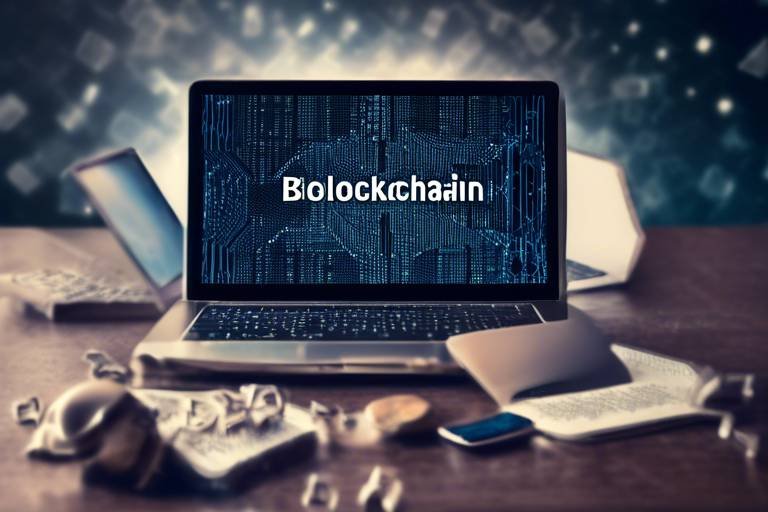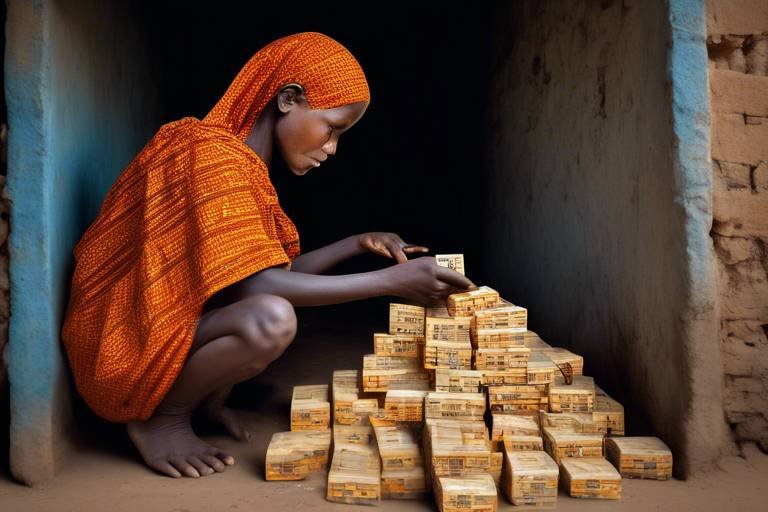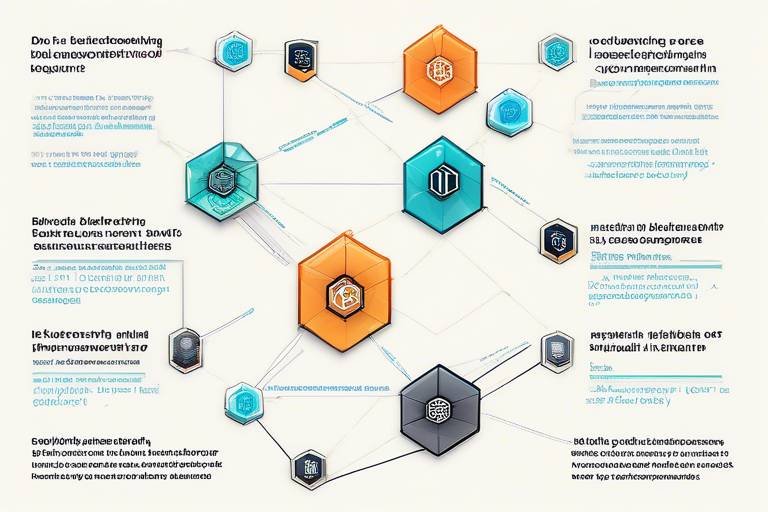How Blockchain is Supporting Fair Trade Practices
In a world where consumers are increasingly concerned about the origins of their products and the ethical implications of their purchases, blockchain technology emerges as a beacon of hope. It’s not just a buzzword; it’s a revolutionary tool that has the potential to transform trade practices across the globe. Imagine being able to track every step of a product's journey, from the farm to your table, ensuring that everyone involved in the process is treated fairly and compensated justly. This is the promise of blockchain in the realm of fair trade.
At its core, blockchain is a decentralized ledger that records transactions in a secure and transparent manner. This means that every transaction is visible to all parties involved, creating an environment of trust and accountability. In essence, it’s like having a public notebook where every trade is documented, and no one can cheat or alter the information without everyone knowing. This transparency is crucial for supporting fair trade initiatives, as it allows consumers to make informed choices about the products they purchase.
But what does this mean for producers, especially those in developing countries? Fair trade is all about promoting equitable trading conditions, empowering these producers, and ensuring they receive fair compensation for their hard work. With blockchain, small producers can gain direct access to markets, thereby reducing reliance on intermediaries who often take a significant cut of their profits. This shift not only enhances their economic sustainability but also fosters a more equitable global economy.
One of the most significant advantages of blockchain technology is its ability to enhance transparency in supply chains. By providing real-time data about product origins and movements, blockchain allows all stakeholders—producers, consumers, and retailers—to verify ethical practices. For instance, if a coffee bean is labeled as fair trade, consumers can trace its journey back to the farm, ensuring that it was sourced ethically and that the farmers received fair wages. This kind of traceability builds trust between consumers and producers, which is essential for the integrity of fair trade.
Moreover, blockchain's immutable nature helps combat fraud and counterfeiting in trade. Think about it: when a product is misrepresented in the market, it not only harms the reputation of ethical brands but also cheats consumers who are trying to make responsible choices. With blockchain, every product is linked to its origin, making it nearly impossible for counterfeit goods to infiltrate the market. This ensures that products meet fair trade standards and that consumers can purchase with confidence.
As we delve deeper into the transformative role of blockchain in fair trade practices, it’s essential to highlight real-world applications. Numerous organizations have successfully implemented blockchain technology to support fair trade, showcasing the tangible benefits and challenges faced along the way. These success stories serve as valuable insights into how technology can facilitate ethical trading and improve the livelihoods of producers.
Despite its promising potential, blockchain technology is not without its challenges. Issues such as scalability, energy consumption, and the need for widespread adoption pose significant hurdles that must be addressed to develop effective fair trade solutions. Understanding these limitations is crucial for stakeholders who wish to harness the full power of blockchain in promoting fair trade practices.
- What is blockchain technology? Blockchain is a decentralized ledger that records transactions securely and transparently, allowing for greater trust among parties involved.
- How does blockchain support fair trade? By enhancing transparency and traceability in supply chains, blockchain ensures that producers receive fair compensation and that consumers can verify ethical practices.
- What are the challenges of implementing blockchain in fair trade? Key challenges include scalability, energy consumption, and the need for widespread adoption among stakeholders.
- Can consumers really trace products back to their source? Yes, blockchain enables consumers to track the journey of products, ensuring they are ethically sourced and produced.

Understanding Blockchain Technology
Blockchain technology serves as a decentralized ledger that records transactions securely and transparently. Imagine a digital notebook that everyone can see but no one can erase. This is what makes blockchain so powerful—it provides a permanent record of all transactions, ensuring that every participant in the trade process has access to the same information. This transparency is crucial for enhancing the integrity of trade practices and supporting fair trade initiatives.
The beauty of blockchain lies in its distributed nature. Unlike traditional databases that are controlled by a single entity, a blockchain is maintained by a network of computers, known as nodes. Each node has a copy of the entire blockchain, which means there’s no single point of failure. This makes it incredibly difficult for anyone to manipulate the data without the consensus of the majority. In a world where trust is often hard to come by, this technology offers a solution that can foster confidence among all stakeholders.
To further illustrate how blockchain works, let’s break down its core components:
- Blocks: Each block contains a list of transactions. Once a block is filled, it is added to the chain.
- Chain: The blocks are linked together in chronological order, creating a secure chain of information.
- Consensus Mechanisms: These are protocols that ensure all nodes agree on the validity of transactions before they are added to the blockchain.
By employing these features, blockchain technology can significantly enhance the way we conduct trade. For instance, it allows for real-time updates on product status, which means that all participants, from producers to consumers, can track the journey of a product from its origin to the point of sale. This level of visibility is vital in ensuring that ethical practices are adhered to, thereby reducing instances of exploitation and fraud.
Moreover, blockchain supports the concept of smart contracts, which are self-executing contracts with the terms of the agreement directly written into code. These contracts automatically enforce and execute themselves when the conditions are met, eliminating the need for intermediaries and reducing the potential for disputes. For example, a farmer can set up a smart contract that automatically pays them once their goods are delivered to a retailer, ensuring they receive fair compensation without delay.
In conclusion, understanding blockchain technology is essential for grasping how it can revolutionize trade practices. By enhancing transparency, ensuring traceability, and reducing fraud, blockchain not only supports fair trade but also fosters a more equitable global economy. As we continue to explore its potential, it’s clear that this technology is not just a passing trend; it’s a powerful tool that can reshape the future of trade.

The Importance of Fair Trade
Fair trade is not just a buzzword; it's a vital movement that aims to create a more equitable trading system. But why should we care about fair trade? Well, it’s all about empowering producers, especially those in developing countries, and ensuring they receive fair compensation for their hard work. Imagine waking up every day, pouring your heart and soul into your craft, only to be underpaid or exploited. That’s the reality for many producers around the world. Fair trade aims to change that narrative by promoting equitable trading conditions and sustainable practices.
At its core, fair trade is built on a set of principles that advocate for social, economic, and environmental justice. These principles include fair wages, safe working conditions, and respect for the environment. By adhering to these guidelines, fair trade organizations strive to create a system where producers can thrive. This is crucial, especially in industries like coffee, chocolate, and textiles, where the supply chain can be convoluted and often unfair.
Moreover, fair trade is about building relationships. It fosters direct connections between producers and consumers, allowing for a more personal touch in the trade process. When you buy fair trade products, you’re not just making a purchase; you're supporting a community and a way of life. You’re choosing to stand against exploitation and make a conscious decision to uplift others. This is where blockchain technology comes into play, enhancing the principles of fair trade by providing transparency and traceability in the supply chain.
To illustrate the importance of fair trade, let’s consider some of its key benefits:
- Empowerment of Producers: Fair trade ensures that producers receive a fair price for their goods, enabling them to invest in their communities and improve their livelihoods.
- Environmental Sustainability: Fair trade practices promote environmentally friendly farming techniques that help preserve the planet for future generations.
- Consumer Awareness: By choosing fair trade products, consumers become more aware of the impact their purchases have on the global economy and the lives of producers.
In summary, fair trade is more than just a label; it’s a movement that encapsulates the essence of social justice and economic fairness. It encourages consumers to think critically about their purchasing decisions and the consequences those decisions have on producers worldwide. By understanding the importance of fair trade, we can all contribute to a more just and equitable global economy.

Transparency in Supply Chains
In today's fast-paced world, where consumers are increasingly aware of the origins of their products, has become more crucial than ever. Blockchain technology plays a pivotal role in ensuring that every step of a product's journey is visible and verifiable. Imagine being able to track your favorite coffee from the farm where it was grown, all the way to your cup. This level of transparency not only empowers consumers but also holds companies accountable for their practices.
By leveraging blockchain, stakeholders in the supply chain—from farmers to retailers—can access real-time data about product origins and movements. This means that if a product claims to be fair trade, consumers can verify that claim with a simple scan of a QR code. Such transparency helps to build trust between consumers and producers, ensuring that ethical practices are not just marketing buzzwords but actual realities.
Moreover, transparency in supply chains can significantly reduce exploitation. When every transaction is recorded on a blockchain, it becomes exceedingly difficult for unethical practices to go unnoticed. For example, if a company is sourcing materials from a supplier known for exploiting workers, this information can be easily traced back and exposed. Consequently, companies are incentivized to ensure that their supply chains are free from unethical practices, fostering a culture of responsibility and integrity.
To illustrate the impact of transparency, consider a recent study that examined the supply chains of various industries. The results highlighted that companies utilizing blockchain technology reported a 30% decrease in supply chain discrepancies. This statistic underscores the effectiveness of blockchain in promoting transparency and accountability. Below is a table summarizing the key benefits of increased transparency in supply chains:
| Benefit | Description |
|---|---|
| Enhanced Trust | Consumers can verify product origins, leading to increased trust in brands. |
| Reduced Fraud | Immutable records make it difficult for fraudulent practices to persist. |
| Improved Compliance | Companies can easily demonstrate compliance with fair trade standards. |
| Empowered Consumers | Consumers make informed choices, supporting ethical businesses. |
In conclusion, the integration of blockchain technology into supply chains is not just a technological upgrade; it is a fundamental shift towards a more ethical and transparent trading environment. As consumers demand more from the brands they support, companies must adapt by embracing transparency as a core value. The future of fair trade practices hinges on this transparency, fostering a marketplace where fairness and integrity reign supreme.
- What is blockchain technology?
Blockchain is a decentralized digital ledger that records transactions across many computers securely and transparently. - How does blockchain enhance transparency?
Blockchain allows all stakeholders to access real-time data about product origins and movements, making it easier to verify ethical practices. - Can blockchain reduce fraud?
Yes, the immutable nature of blockchain helps combat fraud by ensuring that all transactions are recorded and cannot be altered. - Who benefits from increased transparency in supply chains?
Both consumers and producers benefit; consumers gain trust in the products they purchase, while producers are held accountable for their practices.

Traceability of Products
Traceability is a game-changer in the world of fair trade, and blockchain technology is at the forefront of this revolution. Imagine being able to trace every step a product takes from farm to table, ensuring that it is ethically sourced and produced. This level of transparency not only builds trust between consumers and producers but also empowers individuals to make informed choices about the products they purchase. With blockchain, each transaction is recorded in a secure, immutable ledger, allowing anyone to verify the authenticity and origin of a product.
For instance, let's take the journey of a coffee bean. With blockchain, consumers can scan a QR code on their coffee packaging to access detailed information about the bean's journey. They can see:
- Where the coffee was grown
- The farmers involved in its production
- The processing methods used
- Transportation details
- Final sale points
This transparency not only ensures that the coffee is ethically sourced but also allows consumers to support specific farmers or cooperatives directly. By knowing the origin of their products, consumers can feel confident that they are contributing to fair trade practices, which ultimately leads to better living conditions for producers in developing countries.
Moreover, the traceability offered by blockchain helps to uphold fair trade standards. In a world where counterfeit products can easily infiltrate the market, blockchain serves as a safeguard. For example, if a product is labeled as "fair trade," consumers can verify its certification through the blockchain. This verification process is crucial in maintaining the integrity of fair trade practices.
However, the benefits of traceability extend beyond just consumer awareness. Producers also gain significant advantages. By having direct access to information about their products' journey, they can identify any inefficiencies or unethical practices in the supply chain. This information can empower them to advocate for better conditions and prices, ensuring they receive fair compensation for their hard work.
In conclusion, the traceability of products through blockchain technology not only fosters trust between consumers and producers but also reinforces the principles of fair trade. As more companies adopt this technology, we can expect a shift towards a more transparent and equitable global economy, where every purchase contributes to positive change.
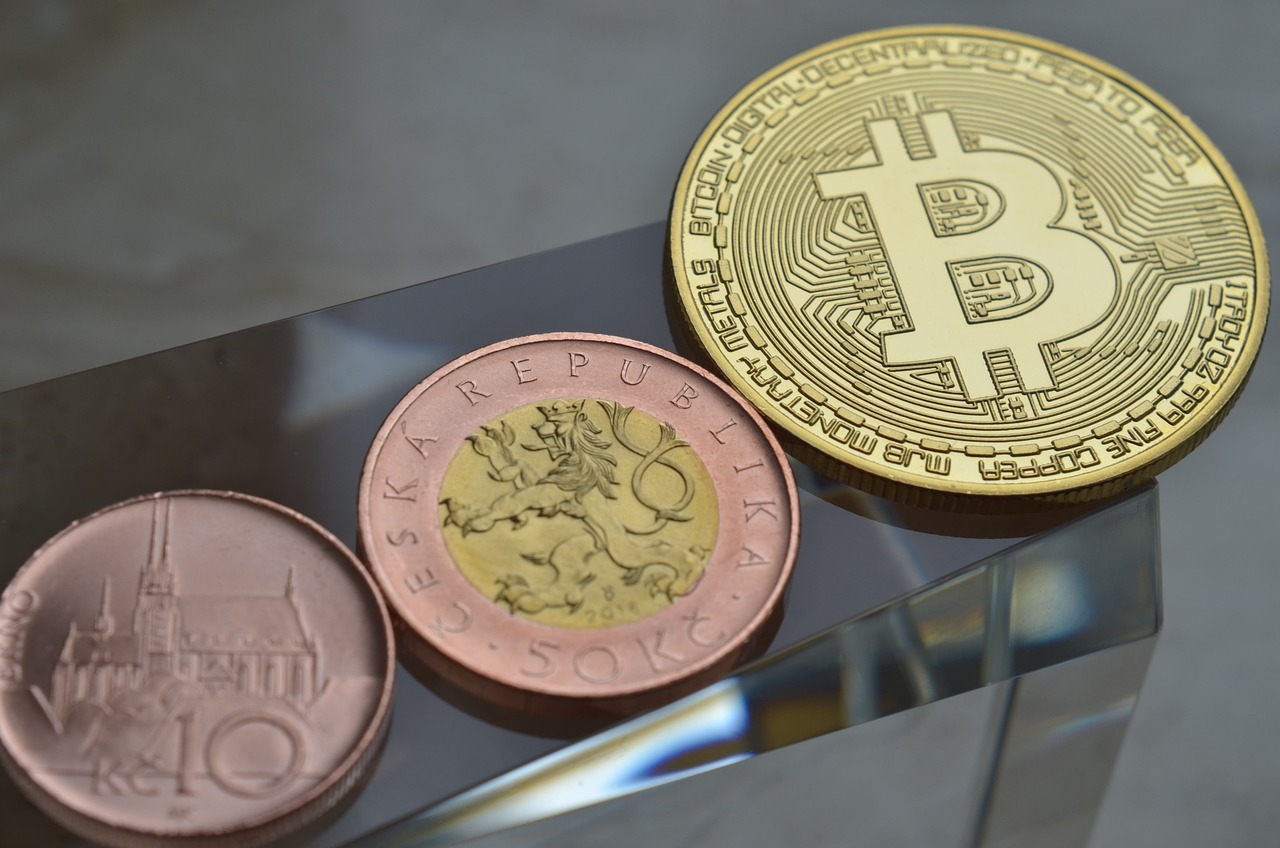
Reducing Fraud and Counterfeiting
In today's global marketplace, the threat of fraud and counterfeiting looms large, impacting consumers, producers, and entire industries. Imagine purchasing a luxury handbag, only to discover it’s a cheap imitation. This scenario not only affects your wallet but also undermines the hard work of authentic artisans. Blockchain technology emerges as a formidable ally in the fight against these deceptive practices, offering a solution that enhances trust and integrity in trade.
One of the most compelling features of blockchain is its immutable nature. Once a transaction is recorded on the blockchain, it cannot be altered or deleted. This characteristic is crucial in establishing a secure chain of custody for products, ensuring that every step of the supply chain is documented and verified. For instance, if a product claims to be fair trade, blockchain can provide a verifiable trail that confirms its ethical sourcing and production. This transparency not only helps consumers make informed choices but also holds producers accountable for their practices.
Moreover, the decentralized nature of blockchain means that no single entity controls the information. This democratization of data reduces the risk of manipulation and fraud. In traditional systems, intermediaries can sometimes misrepresent products for profit, leading to widespread misinformation. However, with blockchain, every participant in the supply chain—from farmers to retailers—can access the same information, fostering a sense of collaboration and trust.
To illustrate the impact of blockchain on reducing fraud and counterfeiting, consider the following table:
| Aspect | Traditional System | Blockchain System |
|---|---|---|
| Data Control | Centralized | Decentralized |
| Transaction Transparency | Limited | High |
| Risk of Fraud | High | Low |
| Accountability | Variable | Guaranteed |
By utilizing blockchain, businesses can also implement advanced verification processes. For example, a brand could use QR codes linked to blockchain data, allowing customers to scan and verify the authenticity of their products instantly. This not only enhances customer confidence but also discourages counterfeiters, who know that their products can be easily identified as fakes.
In conclusion, the integration of blockchain technology into trade practices is a game-changer in the battle against fraud and counterfeiting. By providing a transparent, secure, and immutable record of transactions, blockchain empowers consumers and producers alike. As we move towards a more digitized economy, embracing this technology will be essential for fostering a fair and equitable marketplace, where authenticity and ethical practices reign supreme.
- What is blockchain technology?
Blockchain is a decentralized digital ledger that records transactions across many computers securely and transparently. - How does blockchain reduce fraud?
Blockchain creates an immutable record of transactions, making it difficult for fraudsters to alter information without detection. - Can consumers verify product authenticity using blockchain?
Yes, consumers can use QR codes linked to blockchain data to verify the authenticity of products. - Is blockchain technology widely adopted?
While it is gaining traction, widespread adoption faces challenges such as scalability and energy consumption.

Empowering Small Producers
In the world of trade, small producers often find themselves at a disadvantage, struggling to compete against larger corporations that dominate the market. However, blockchain technology is changing the game by empowering these small producers in remarkable ways. Imagine a world where farmers, artisans, and small business owners can connect directly with consumers, bypassing the traditional intermediaries that often take a hefty cut of their profits. This is not just a dream; it’s becoming a reality thanks to blockchain.
One of the most significant advantages of blockchain is that it provides direct access to markets. By using a decentralized platform, small producers can showcase their products without needing to rely on middlemen who may not have their best interests at heart. This direct access enables them to set fair prices for their goods, ensuring they receive a more equitable share of the profits. For instance, a coffee farmer can sell their beans directly to consumers, highlighting their unique growing practices and the ethical standards they uphold.
Moreover, blockchain enhances trust and transparency between producers and consumers. When a product is listed on a blockchain-enabled platform, its entire journey—from farm to table—is recorded. Consumers can see exactly where their product comes from, how it was produced, and the practices involved in its creation. This transparency not only builds trust but also encourages consumers to support small producers who adhere to ethical practices. In essence, it creates a community of conscious consumers who are more likely to pay a premium for goods that are sustainably and ethically produced.
Additionally, the elimination of intermediaries means that small producers can retain more of their earnings. A study conducted by the Food and Agriculture Organization (FAO) showed that by reducing the number of middlemen, farmers could increase their income by up to 30%. This additional income can be life-changing, enabling producers to invest in better equipment, improve their farming practices, or even expand their businesses. The table below illustrates the potential income benefits for small producers using blockchain:
| Producer Type | Traditional Earnings | Blockchain Earnings | Income Increase (%) |
|---|---|---|---|
| Coffee Farmer | $1,500 | $1,950 | 30% |
| Artisan Craft Maker | $800 | $1,040 | 30% |
| Small Scale Fisherman | $2,000 | $2,600 | 30% |
Furthermore, blockchain can facilitate collaborative efforts among small producers. By connecting with each other through blockchain networks, they can share resources, knowledge, and market access. This collaboration can lead to the formation of cooperatives or collective brands, amplifying their voices in the market and increasing their bargaining power. Imagine a group of small farmers banding together to form a brand that emphasizes their commitment to sustainable practices—this not only enhances their visibility but also attracts consumers who value ethical consumption.
In conclusion, blockchain technology is a powerful ally for small producers, offering them the tools they need to thrive in a competitive marketplace. By providing direct access to consumers, enhancing transparency, and enabling collaboration, blockchain is fostering a new era of fair trade practices that empower those who have long been marginalized in the global economy. As we continue to explore the potential of blockchain, it’s crucial to remember that the real winners are the small producers who can finally receive the recognition and compensation they deserve.
- How does blockchain help small producers? Blockchain provides direct access to markets, reduces intermediaries, and ensures fair pricing, allowing small producers to retain more earnings.
- Can consumers trust products sourced through blockchain? Yes, blockchain enhances transparency, allowing consumers to trace products back to their source and verify ethical practices.
- What are the challenges small producers face when using blockchain? Some challenges include the need for technology adoption, understanding blockchain systems, and potential costs associated with implementation.

Case Studies of Blockchain in Fair Trade
In recent years, the integration of blockchain technology into fair trade practices has sparked a wave of innovation and transformation across various sectors. Organizations are increasingly recognizing the potential of blockchain to revolutionize traditional trading methods, ensuring that ethical practices are upheld. Let's dive into some remarkable case studies that illustrate how blockchain is being utilized to foster fair trade.
One standout example is the Everledger initiative, which focuses on the diamond industry. By utilizing blockchain, Everledger has created a digital ledger that tracks the provenance of diamonds, ensuring that they are sourced ethically and not linked to conflict zones. This transparency not only protects consumers from inadvertently supporting unethical practices but also empowers miners who can verify the legitimacy of their stones. As a result, buyers can make informed decisions, and miners receive fair compensation for their labor.
Another inspiring case is the BanQu platform, which connects smallholder farmers in developing countries directly to global supply chains. By using blockchain, BanQu enables these farmers to create a digital identity that showcases their products and farming practices. This direct access to markets eliminates the need for intermediaries, allowing farmers to negotiate better prices for their goods. The technology also provides a transparent record of transactions, ensuring that farmers receive fair compensation for their contributions to the supply chain.
Moreover, the Food Trust initiative led by IBM is a prime example of how blockchain can enhance transparency in food supply chains. By tracking food products from farm to table, the Food Trust platform allows consumers to trace the origins of their food, assuring them that it meets ethical and safety standards. This initiative not only helps in building consumer trust but also supports farmers who adhere to fair trade practices by giving them recognition in the marketplace.
| Case Study | Industry | Key Benefits |
|---|---|---|
| Everledger | Diamonds | Transparency in sourcing, ethical verification |
| BanQu | Agriculture | Direct access to markets, fair compensation |
| IBM Food Trust | Food | Traceability, consumer trust |
These case studies not only highlight the tangible benefits of implementing blockchain in fair trade practices but also serve as a beacon of hope for a more equitable global economy. However, while the successes are compelling, it’s important to also consider the challenges and limitations that accompany these innovations. Issues such as scalability, energy consumption, and the need for widespread adoption are critical factors that must be addressed to ensure the long-term viability of blockchain solutions in fair trade.
As we continue to explore the intersection of technology and ethical trading, these case studies provide valuable insights into how blockchain can be leveraged to support small producers and promote fair trade principles. The journey is just beginning, and the potential for growth and improvement is immense.
- What is blockchain technology? Blockchain is a decentralized digital ledger that records transactions across many computers in a way that the recorded transactions cannot be altered retroactively.
- How does blockchain support fair trade? By enhancing transparency and traceability, blockchain ensures that products are ethically sourced and that producers receive fair compensation.
- What are some challenges of implementing blockchain in fair trade? Key challenges include scalability, energy consumption, and the need for widespread adoption among all stakeholders in the supply chain.
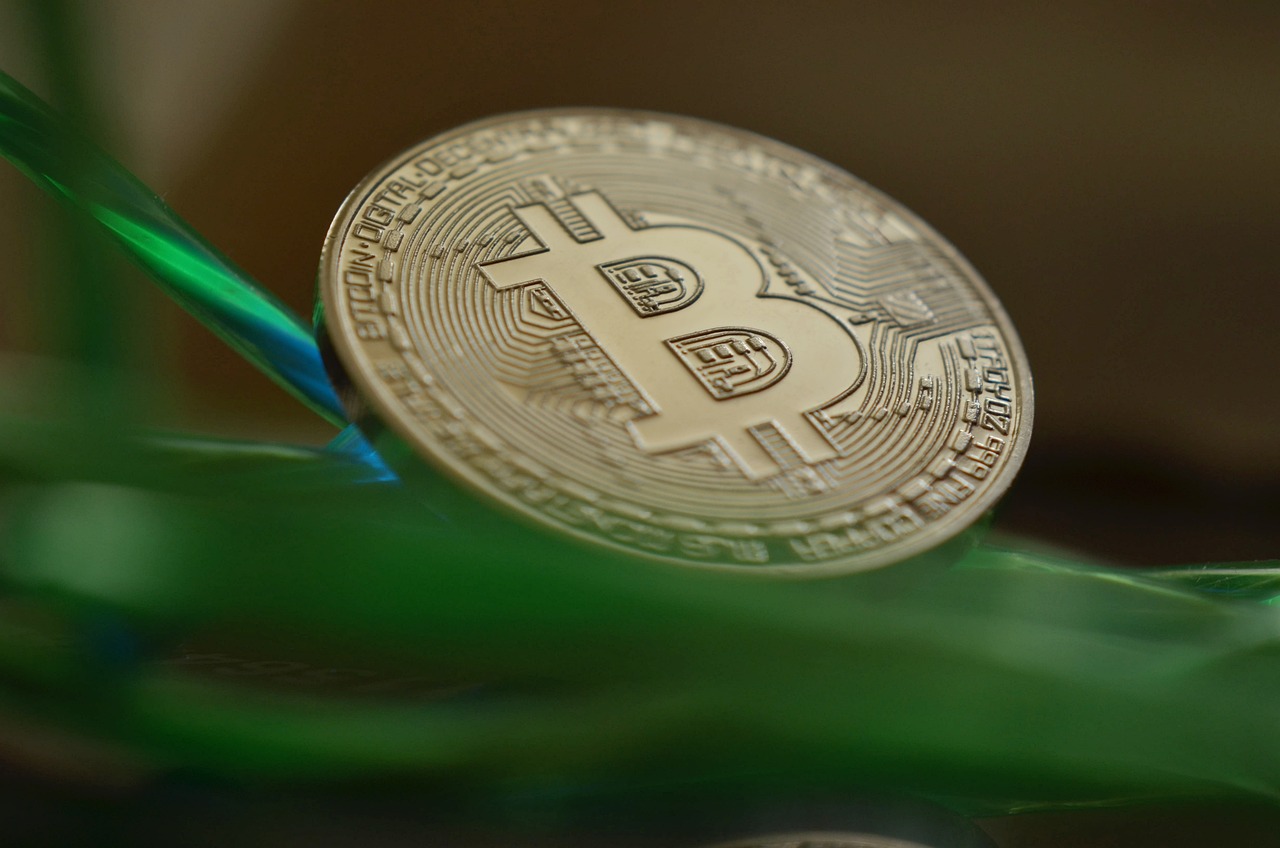
Success Stories
In the realm of fair trade, blockchain technology has emerged as a beacon of hope, illuminating the path for numerous organizations striving to ensure ethical practices. One of the most notable success stories comes from the coffee industry, where a cooperative in Guatemala utilized blockchain to connect directly with consumers. By documenting every step of the coffee's journey from the farm to the cup, they not only enhanced transparency but also significantly increased their profits. This direct connection allowed consumers to see exactly how their purchases supported local farmers, creating a sense of community and trust.
Another inspiring example is the collaboration between a chocolate producer and a blockchain startup. By implementing a blockchain system, the chocolate company was able to track the cacao beans from their origin in Ecuador to the final product. This initiative not only ensured that farmers received fair wages but also educated consumers about the ethical sourcing of their chocolate. As a result, sales soared, and the farmers experienced a much-needed boost in their livelihoods. This case illustrates how technology can bridge the gap between producers and consumers, fostering a more equitable trading environment.
In addition, a consortium of organizations in the textile industry has come together to leverage blockchain for ensuring fair labor practices. By creating a transparent ledger that records every transaction and labor condition, they aim to eradicate exploitation in garment production. This initiative has not only improved working conditions but has also empowered consumers to make informed choices about their clothing purchases. The ability to scan a QR code on a garment and trace its production journey back to the factory is a game-changer in promoting ethical fashion.
These success stories highlight the transformative potential of blockchain in supporting fair trade practices. However, they also come with challenges. While the technology itself is promising, the need for widespread adoption and education among producers and consumers remains a hurdle. Nevertheless, as more organizations share their experiences and best practices, the hope is that blockchain will continue to pave the way for a fairer global economy.
- What is blockchain technology?
Blockchain is a decentralized digital ledger that records transactions across many computers, ensuring that the recorded transactions cannot be altered retroactively.
- How does blockchain enhance fair trade?
By providing transparency and traceability in supply chains, blockchain ensures that producers are fairly compensated and that consumers can verify the ethical sourcing of products.
- Are there any challenges to implementing blockchain in fair trade?
Yes, challenges include scalability, energy consumption, and the need for widespread adoption among stakeholders in the supply chain.
- Can small producers benefit from blockchain?
Absolutely! Blockchain reduces intermediaries, allowing small producers to access markets directly and receive fair prices for their goods.

Challenges and Limitations
While blockchain technology holds immense potential for revolutionizing fair trade practices, it also faces several that must be addressed to unlock its full benefits. One of the most significant hurdles is scalability. As the number of transactions increases, the blockchain network can become congested, leading to slower processing times and higher transaction fees. This can be particularly problematic for small producers who may lack the resources to cope with increased costs.
Another important challenge is energy consumption. Many blockchain networks, especially those using a proof-of-work consensus mechanism, require substantial computational power, resulting in high energy usage. This not only raises environmental concerns but also poses a financial burden on participants in the fair trade ecosystem. As the world becomes more environmentally conscious, the sustainability of blockchain technology will come under scrutiny.
Widespread adoption is another critical limitation. For blockchain to be effective in supporting fair trade practices, all stakeholders—including producers, consumers, and intermediaries—must be willing to adopt the technology. This requires education and training, as many individuals in developing countries may not have the necessary technological skills or access to the required infrastructure. Without broad participation, the benefits of blockchain can be severely limited.
Additionally, there are regulatory challenges to consider. Different countries have varying laws and regulations regarding data privacy, financial transactions, and digital currencies. Navigating this complex landscape can be daunting and may hinder the implementation of blockchain solutions in fair trade. Stakeholders must work together to create a unified framework that addresses these legal concerns while promoting innovation.
Lastly, there is the issue of trust and data integrity. While blockchain is designed to be secure and tamper-proof, the information entered into the blockchain is only as reliable as the sources providing it. If producers or intermediaries misrepresent data, it can undermine the entire system. Building trust among participants is essential, and this may take time and consistent effort.
In summary, while blockchain technology has the potential to significantly enhance fair trade practices, addressing these challenges is crucial for creating a truly equitable trading system. By focusing on scalability, energy consumption, widespread adoption, regulatory frameworks, and trust, stakeholders can work towards a future where blockchain serves as a powerful ally in the fight for fair trade.
- What is blockchain technology?
Blockchain technology is a decentralized digital ledger that securely records transactions across multiple computers, ensuring data integrity and transparency.
- How does blockchain support fair trade?
Blockchain enhances transparency, traceability, and trust in supply chains, allowing consumers to verify the ethical sourcing of products and ensuring fair compensation for producers.
- What are the main challenges of using blockchain in fair trade?
The main challenges include scalability, energy consumption, the need for widespread adoption, regulatory hurdles, and issues related to trust and data integrity.
- Can blockchain technology help small producers?
Yes, by reducing intermediaries and providing direct access to markets, blockchain can empower small producers to receive fair prices for their goods.
Frequently Asked Questions
- What is blockchain technology?
Blockchain technology is a decentralized digital ledger that records transactions across many computers securely and transparently. This means that once a transaction is recorded, it cannot be altered or deleted, ensuring integrity and trust in the data.
- How does blockchain enhance fair trade practices?
Blockchain enhances fair trade practices by increasing transparency and traceability in supply chains. It allows consumers and producers to verify the ethical sourcing of products, ensuring that everyone involved receives fair compensation and reducing the risk of exploitation.
- Can consumers trace products using blockchain?
Absolutely! One of the key features of blockchain is its ability to provide consumers with detailed information about a product's journey from its origin to the store. This traceability builds trust and confidence in the product's ethical sourcing.
- What are the benefits of using blockchain for small producers?
Blockchain empowers small producers by giving them direct access to markets, which reduces the number of intermediaries. This means they can sell their goods at fair prices, ultimately promoting economic sustainability and improving their livelihoods.
- What challenges does blockchain face in fair trade?
While blockchain has great potential, it also faces challenges such as scalability issues, high energy consumption, and the need for widespread adoption among stakeholders. Addressing these challenges is essential for maximizing the benefits of blockchain in fair trade.
- Are there any real-world examples of blockchain in fair trade?
Yes! Several organizations have successfully implemented blockchain to support fair trade practices. These case studies highlight the tangible benefits of using blockchain, such as improved transparency and better market access for producers.

